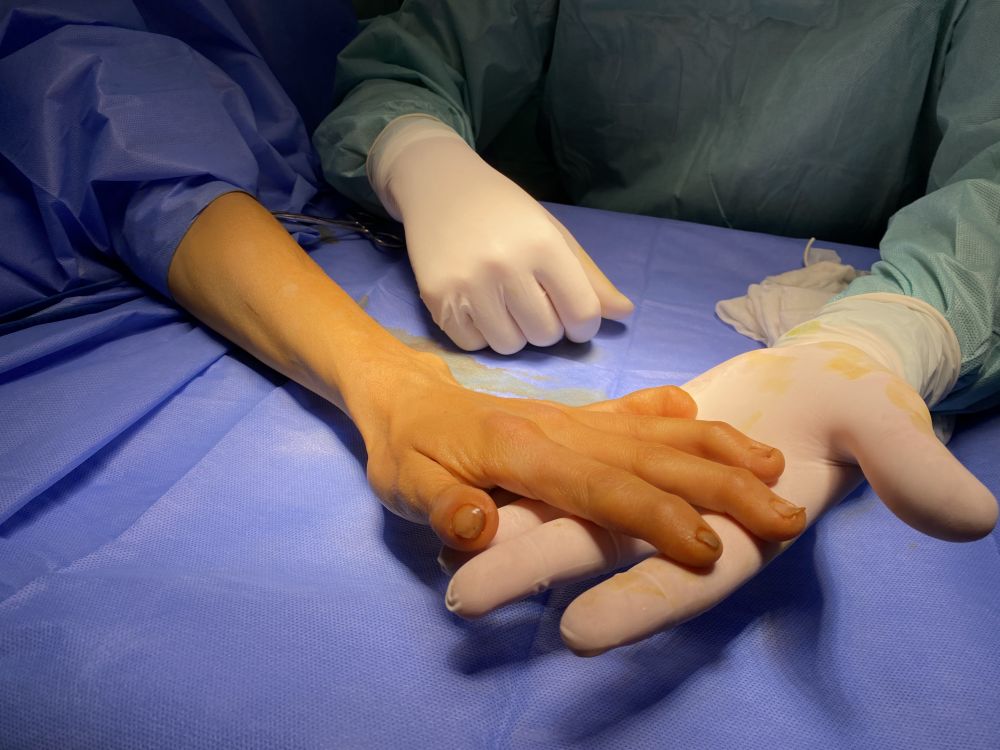For 36 years, the woman hid her hands from prying eyes due to a mysterious disease that caused deformation of her fingers and toes. In order to fulfill a woman’s dream of giving her hands an aesthetic appearance, doctors at the St. Panteleimon Hospital of the First Medical Association of Lviv performed a complex plastic and reconstructive operation.
There is no description of this pathology in any world scientific source, so this mutation will be studied in Great Britain.
A resident of the Mykolaiv district turned to Lviv surgeons a few months ago. From birth, her nail phalanges were rounded and enlarged, and the development of extensor tendons was impaired. Therefore, the fingers did not unbend, and the hand was always half-bent. And although this did not interfere with the woman’s everyday life, she felt constant discomfort.
After examining the patient, the doctors came to the conclusion that she has a rare genetic pathology, the description of which is not available in world scientific sources. However, after long consultations, the head of the 1st surgical department, Hnat Gerych, together with the team decided to perform a complex plastic and reconstructive operation. But first – on the left hand.
The intervention took place in several stages. First, plasticity of tendon structures, then plasticity of soft and bone tissues, and, finally, fixation of the bone in the correct position.
The operation, which lasted more than three hours, was successful and the patient went home the very next day. Doctors are continuing to monitor the condition of the hand after the intervention, and are already planning to operate on the woman’s other, right hand.
Also, on the recommendation of the surgeons, this unusual case was examined by their colleagues – specialists from one of the best reconstructive surgery centers in the world – at the University of Oxford. After studying the medical history and the results of the patient’s examinations, the British doctors replied that this is an extremely rare disease with a low incidence, and they have not yet encountered similar cases. Moreover, the hospital’s specialists sent the patient’s collected genetic material to the laboratory in Oxford, so now the unknown mutation will be studied by scientists not only in Ukraine, but also in Great Britain.

